I've Tried Dozens of Skin Supplements—These Are the 7 That Make a Difference
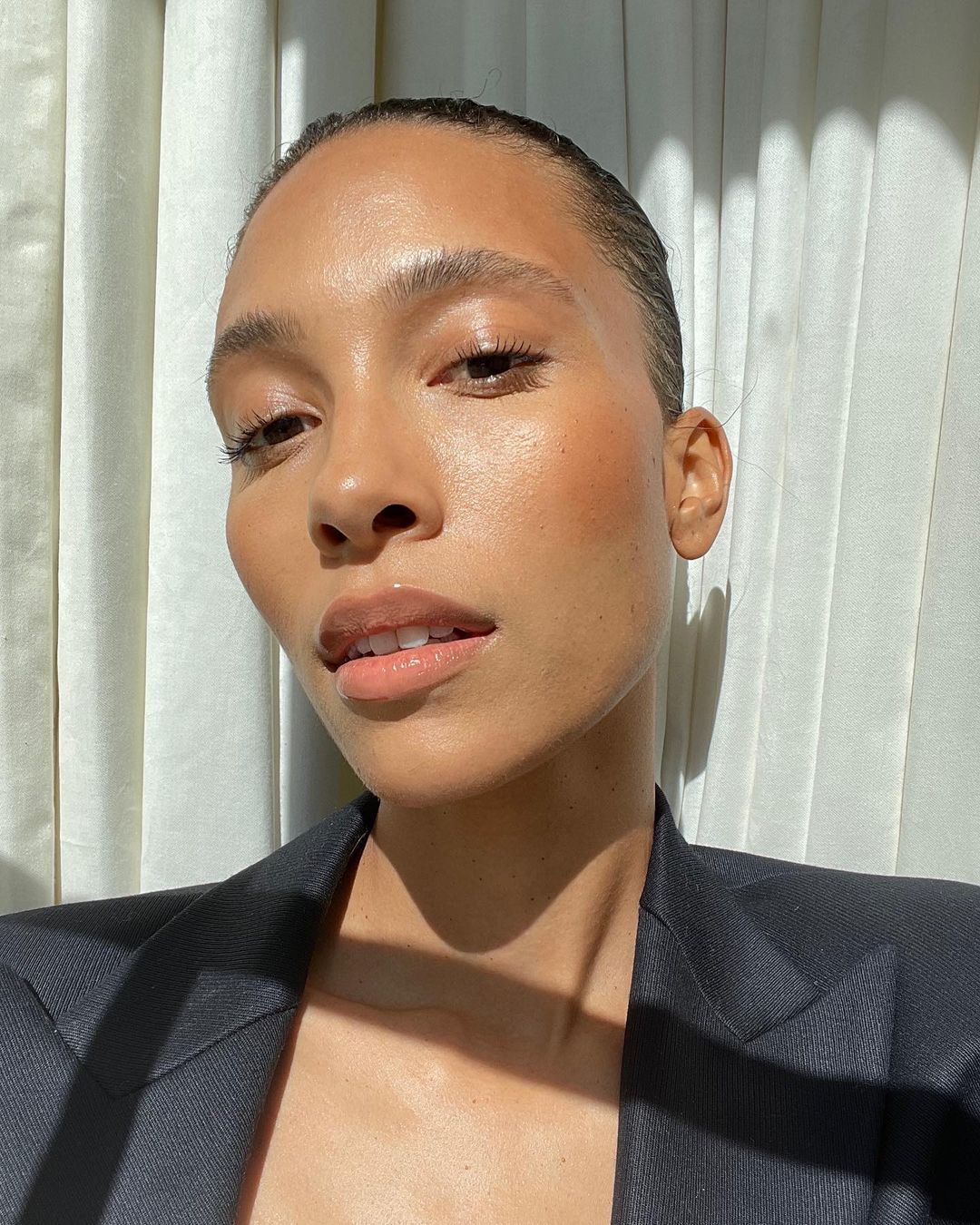
With so much focus on which skincare products to use and which facial treatments to book, it can be easy to forget that achieving healthy skin isn’t just about what goes on your skin. I know this for a fact because despite having had access to a vast array of incredible products and regular facials over the past decade (the perks of being a beauty editor), I still consistently got breakouts. The truth is that serums, creams, masks and oils can only go so far because it’s (quite literally) what’s inside that counts.
According to Lorraine Perretta, head of nutrition for Advanced Nutrition Programme, topical skincare actually only provides 50% of the solution when it comes to achieving healthy skin. "That is why it is important to address skin ‘from within’ and to recognise that skin is a two-sided organ,” she adds. In addition, skin is also influenced by the health of the rest of our body. "Your visceral organs play a huge role in your skin, so negotiating with them is a major factor in the skin’s health,” explains skin and wellness expert Marie Reynolds. "For example, acne links to liver as well as with the ovaries, while sensitivity links with the stomach.”
When I first began to take supplements specifically with my skin in mind, I was sceptical. Supplements don’t have the instant gratification of a face mask or glow-boosting serum, so I didn’t see results straight away. But after around three months, I started to notice that my breakouts weren’t as frequent, my skin was much less textured, and I had more of an even all-round glow. This goes to show that while you don’t necessarily see results from the get-go, that doesn’t mean that the supplements you take aren’t working hard behind the scenes.
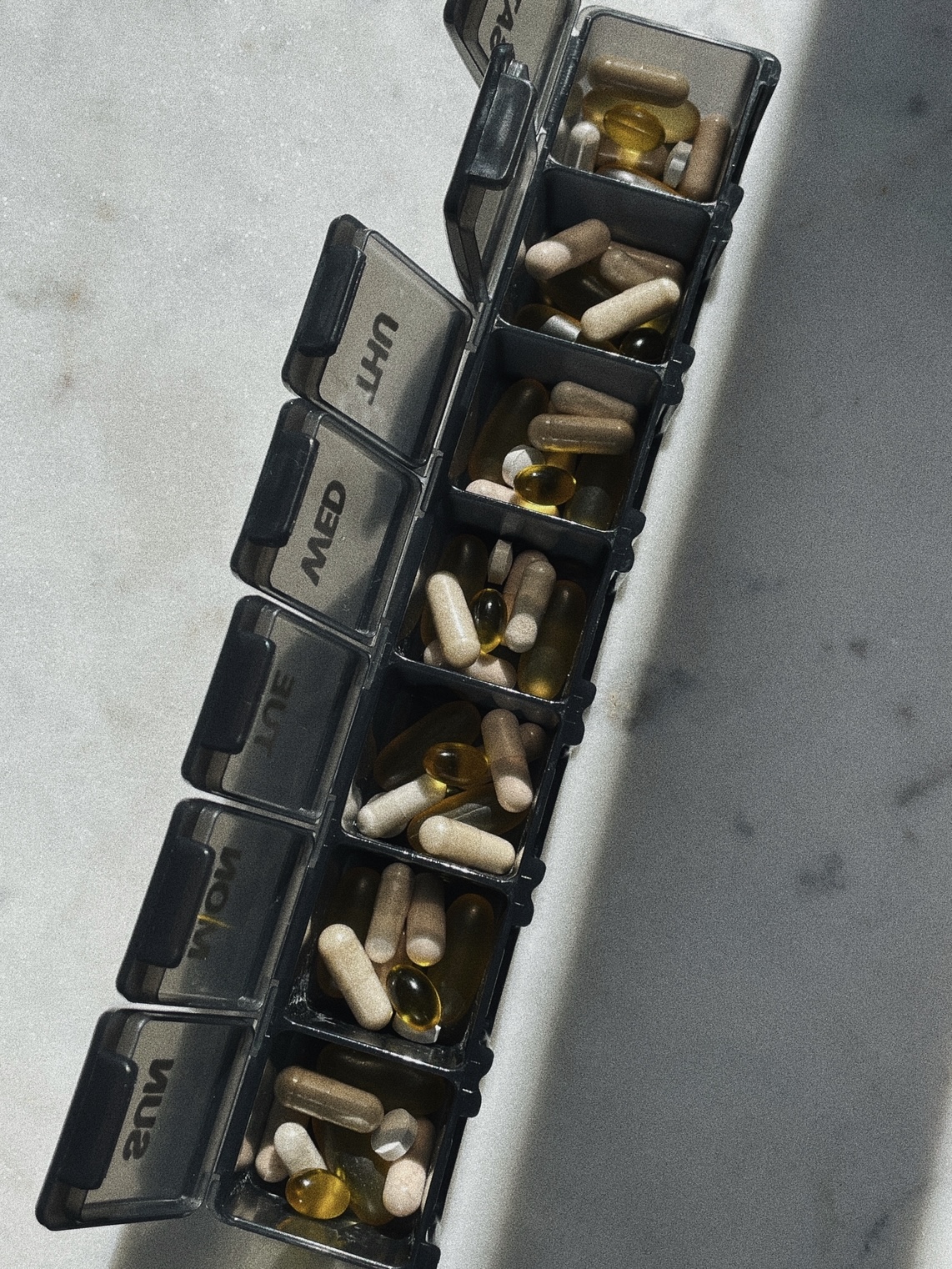
In fact, according to Perretta, it can take at least three months before the benefits become visible. "Each supplement is unique, and everyone is different, so some individuals start to see results earlier,” she says. It goes without saying that consistency and commitment pay off, so don’t make the mistake I initially did of disregarding a supplement because you finished your 30-day supply without noticing a complete transformation.
Some might argue that the nutrients provided by food should suffice, and of course, a diet naturally rich in vitamins and minerals is ideal, but it’s not always achievable. "Diets low in fruits and vegetables, omega-3 fatty acids, and high in refined carbohydrates, saturated fat and salt may cause abnormalities to our skin structure and function,” explains Alex Glover, senior nutritionist at Holland & Barrett. This is where supplements come in. Boosting your diet with specific ingredients that have proven skincare benefits can help to fill in the gaps and allow you to adopt a fully holistic 360-degree approach to skincare.
So where to start? While the world of skincare products can be overwhelming, it has nothing on the supplement market. In the UK, supplements are classed as foodstuffs, which means they come under a completely different set of rules and regulations to skincare products. You’ll notice this in the way they’re marketed, with an emphasis on research-backed evidence over results-driven descriptions. This means that it’s not always super easy to figure out how a supplement might benefit your specific skin type and concerns.
Here's where I come in. Whether your skin is dry, oily, ageing or breakout-prone, I've done the hard work for you and curated the ultimate edit of skin supplements to shop now.
1. Omegas
Perretta describes omegas as essentially acting like internal moisturisers. "They provide support for all skin types, but I’d highly recommended them for dry skin or those impacted by winter skin changes,” she adds. Aside from improving moisture levels, omega-3 has also been proven to help reduce overall inflammation, so it can help to counteract redness and even reduce breakouts.
Omegas to look out for include GLA or linoleic acid (omega-6 fatty acids), which are found in evening primrose oil, and EPA and DHA (omega-3 fatty acids), which are usually derived from fish oil.
Shop the supplements:
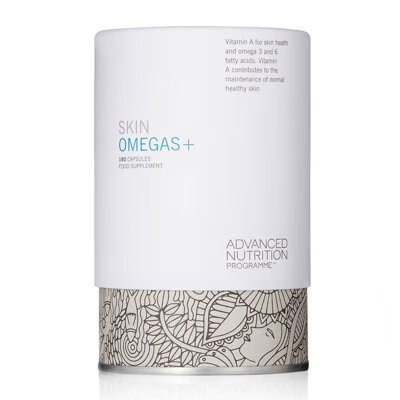
"This formula contains EPA, DHA, GLA and vitamin A for benefits to hydration, skin smoothness, and wrinkle depth,” says Perretta. What’s more, all of the omegas in the blend are sourced using sustainable methods that conserve marine habitats.
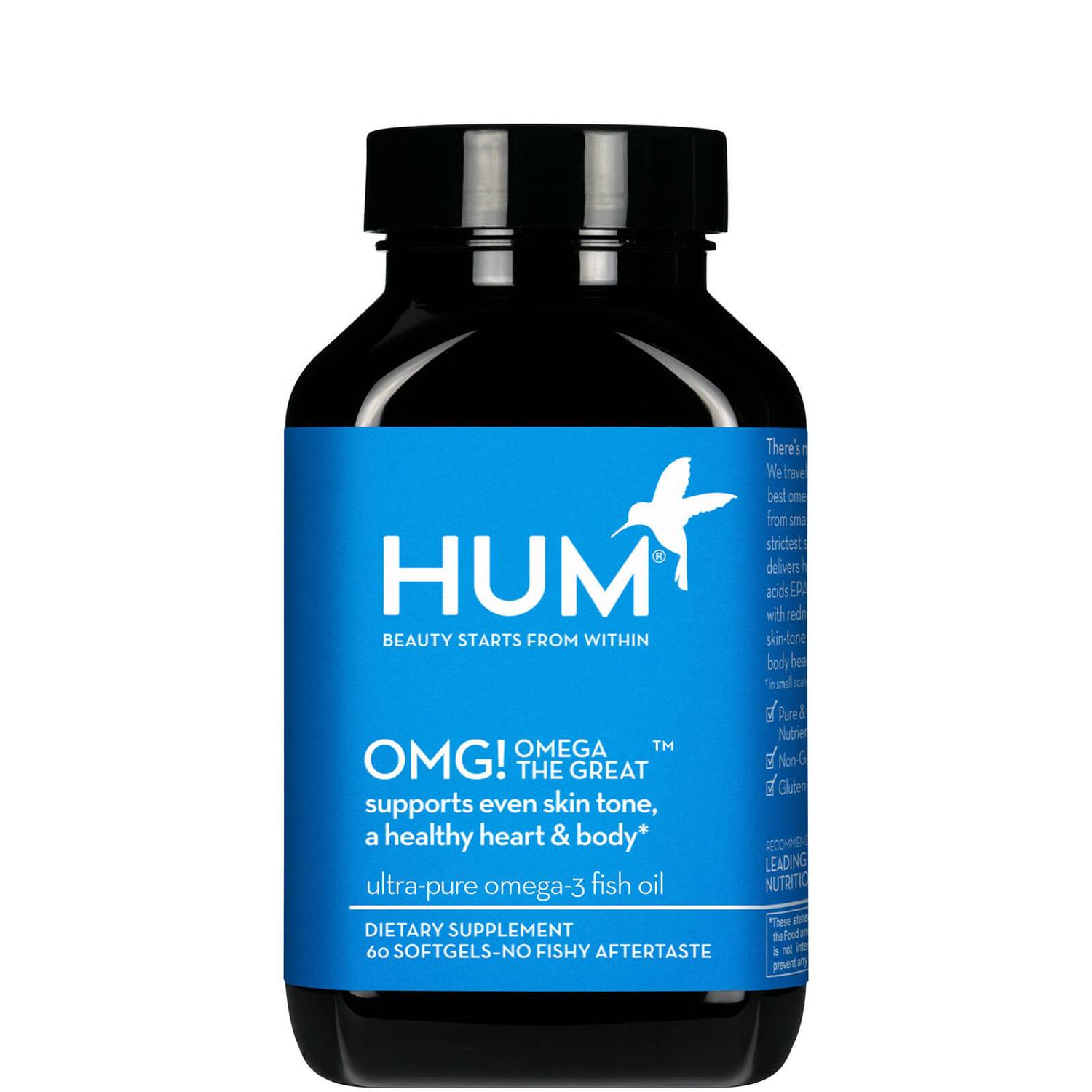
Sustainably sourced from small fish like sardines, mackerels, and anchovies, these nutrient-rich omega-3s surpass the strictest purity ingredient standards. Plus, in an eight-week clinical study of acne patients taking the supplement, 67% reductions in lesions were reported.
2. Zinc
Zinc is often touted for its immunity-boosting benefits, but it also plays a role in wound healing and antioxidant protection, which benefits the skin. "The skin uses zinc to produce specialised cells called keratinocytes, the cells that make keratin,” explains Glover. "Keratin (like collagen) gives skin elasticity and strength.” This means that zinc can help to support the restoration of damaged skin, so can be an effective supplement to take if you have long-term skin damage like scarring or inflammation.
"Because zinc can function as an antioxidant in the body, this trace mineral also helps protect skin against free radicals,” Glover adds. "An excess of free radicals can cause oxidative stress, which is known to accelerate skin ageing and may contribute to fine lines and wrinkles due to loss of collagen.”
Shop the supplements:
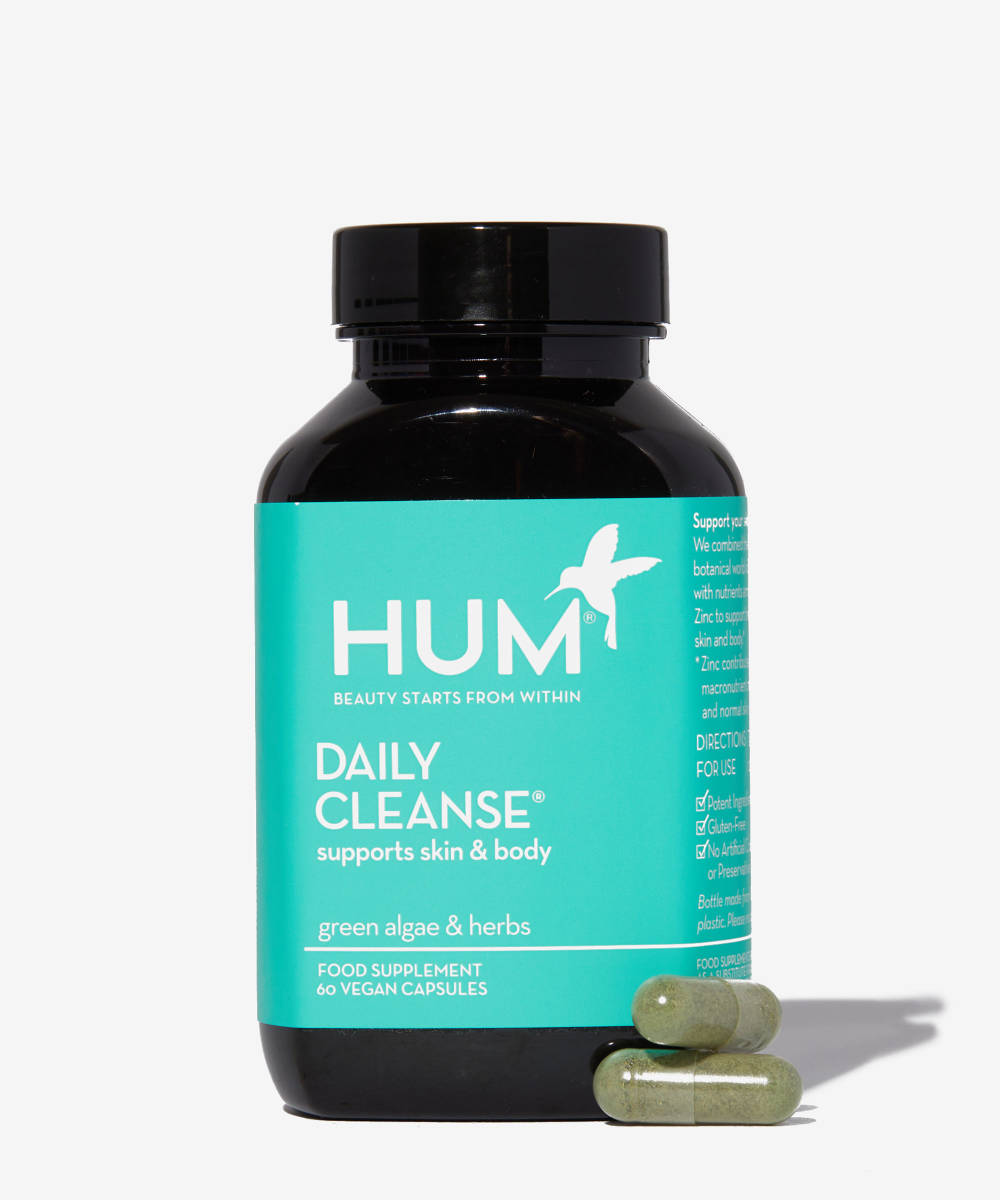
"If you suffer from acne at all, zinc has been shown in clinical studies to reduce breakouts,” explains Jennifer Martin-Biggers, vice president of scientific affairs and education at Hum Nutrition. "We included zinc in our Daily Cleanse supplement to support clear skin alongside the cleansing benefits of green algae and spirulina.”
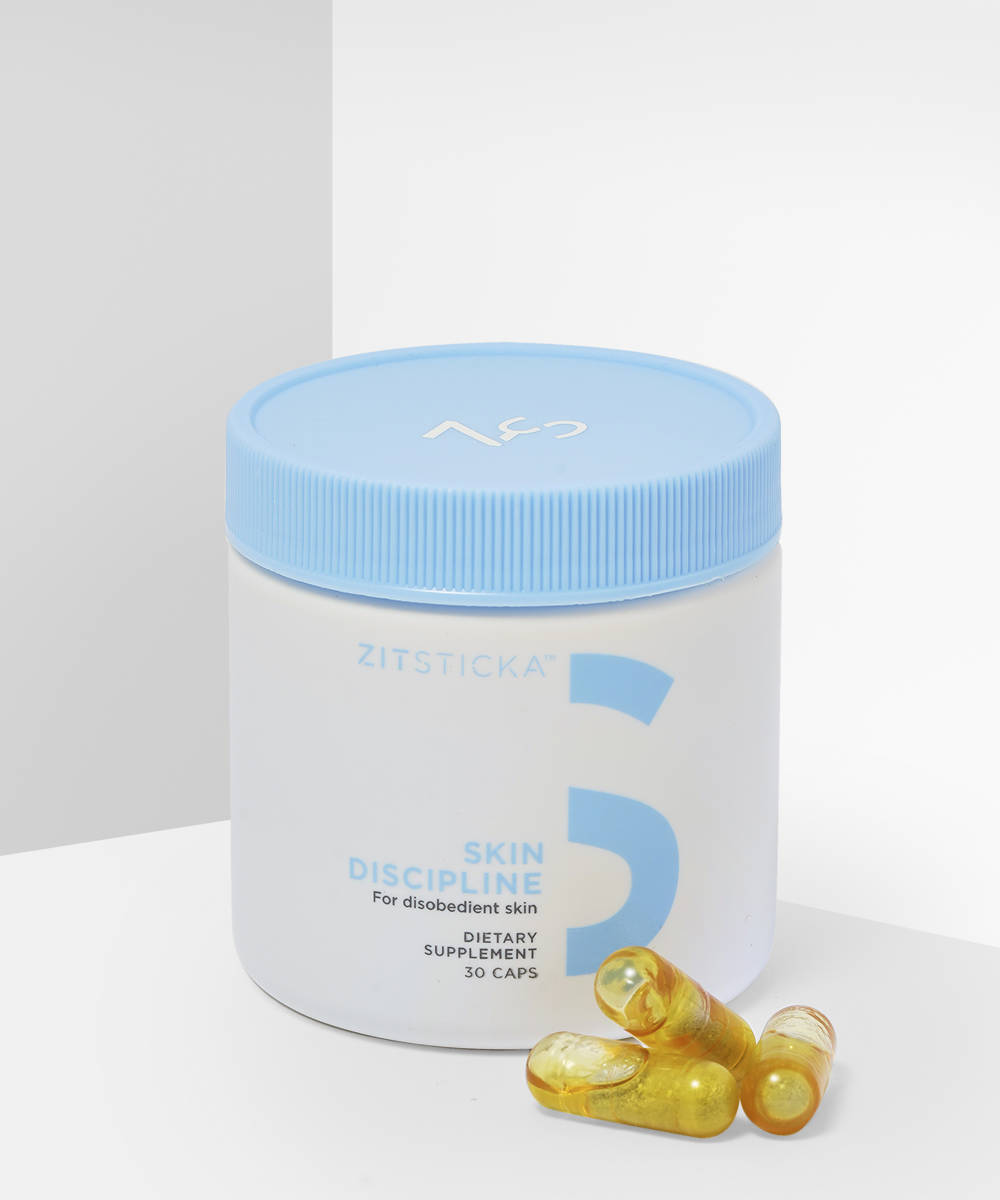
Zinc is the key ingredient in this skin-focussed multivitamin, which is specifically targeted at oily, breakout-prone skin.
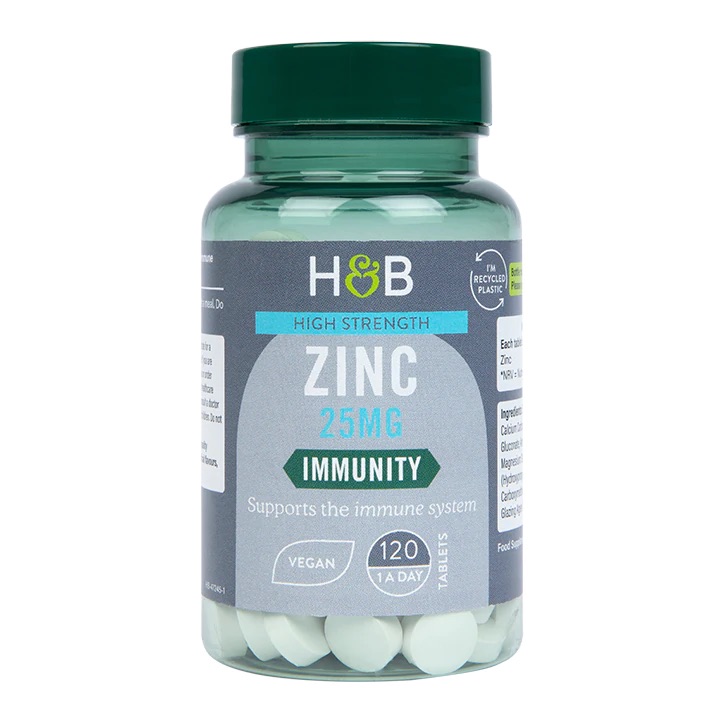
These high-strength one-a-day zinc supplements not only have skincare benefits but will also help reduce tiredness and fatigue and support the immune system.
3. Probiotics
One thing all nutritionists and skin experts are unanimous on is the correlation between skin and gut health. "Gut health is key to all skin types,” says Perretta. Probiotics have become something of a buzzword in the beauty community over the past few years and have even started to appear in some topical skincare products. They function by promoting the growth of healthy bacteria, while prebiotics are essentially food for the probiotics. "They’re both really important for skin because prebiotics boost the health of the bacteria we have in the skin’s microbiome, and probiotics add what we may be lacking in,” adds Reynolds. "It is really important that the skin’s immune system is balanced to help reduce any sensitivity or breakouts.”
Shop the supplements:
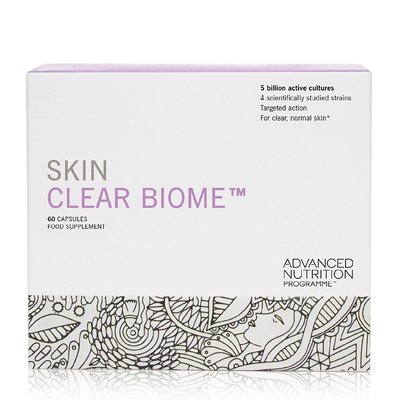
"This is great for those looking to support problem-prone or stressed-skin challenges,” says Perretta. Packed with four specific skin-friendly strains of good bacteria, the capsules are formulated to ensure active bacteria reach the area of the gut where they are most needed.
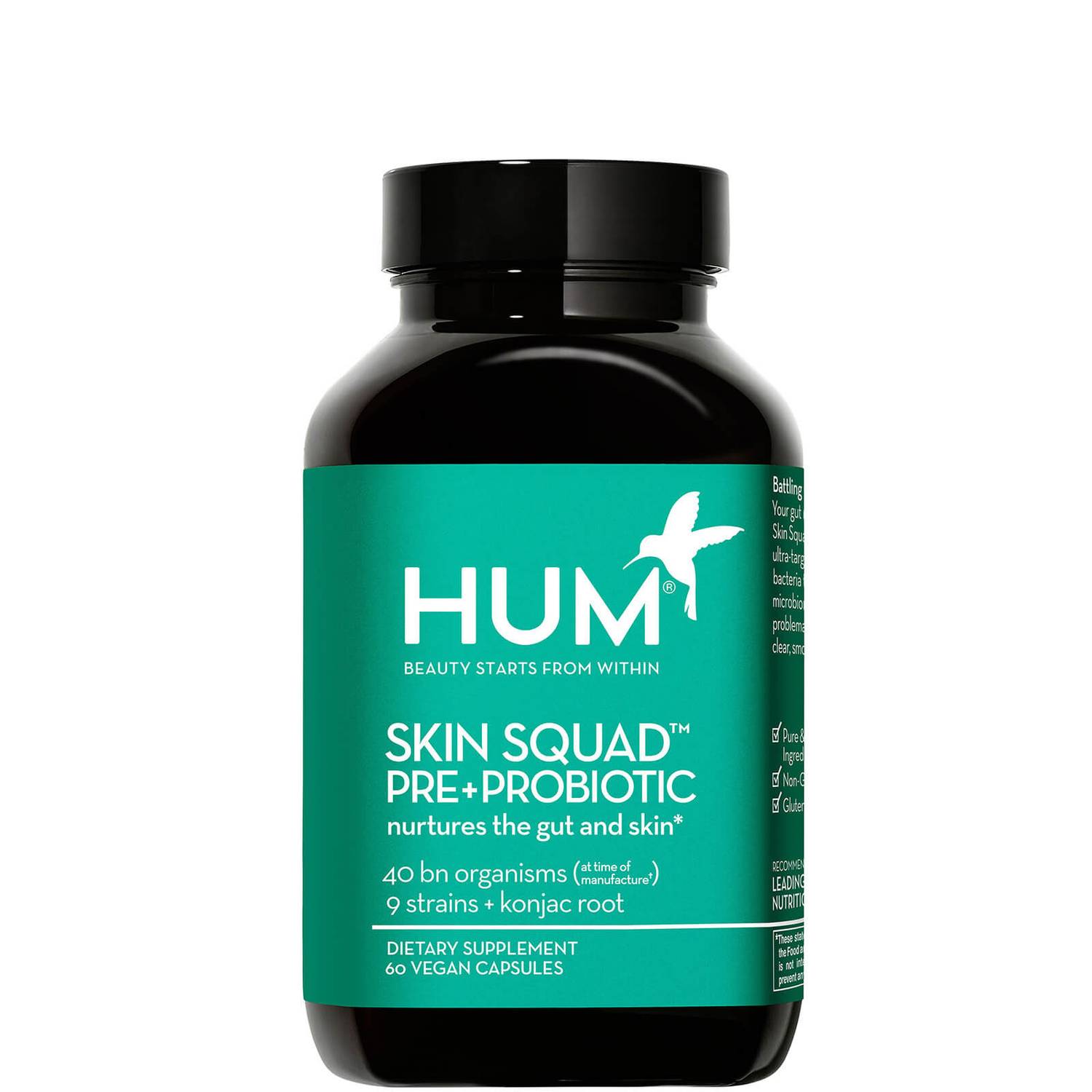
"This ticks all the boxes for gut health and is fantastic to support healthy skin, especially in people prone to breakouts,” says Martin-Biggers. When formulating Skin Squad, the brand worked with a dermatologist, who conducted a clinical study with 27 women taking the supplement daily for two months. At the end of the study, 88% had an improvement in the severity of their breakouts, but there was also an increase in skin hydration and improvements in digestion.
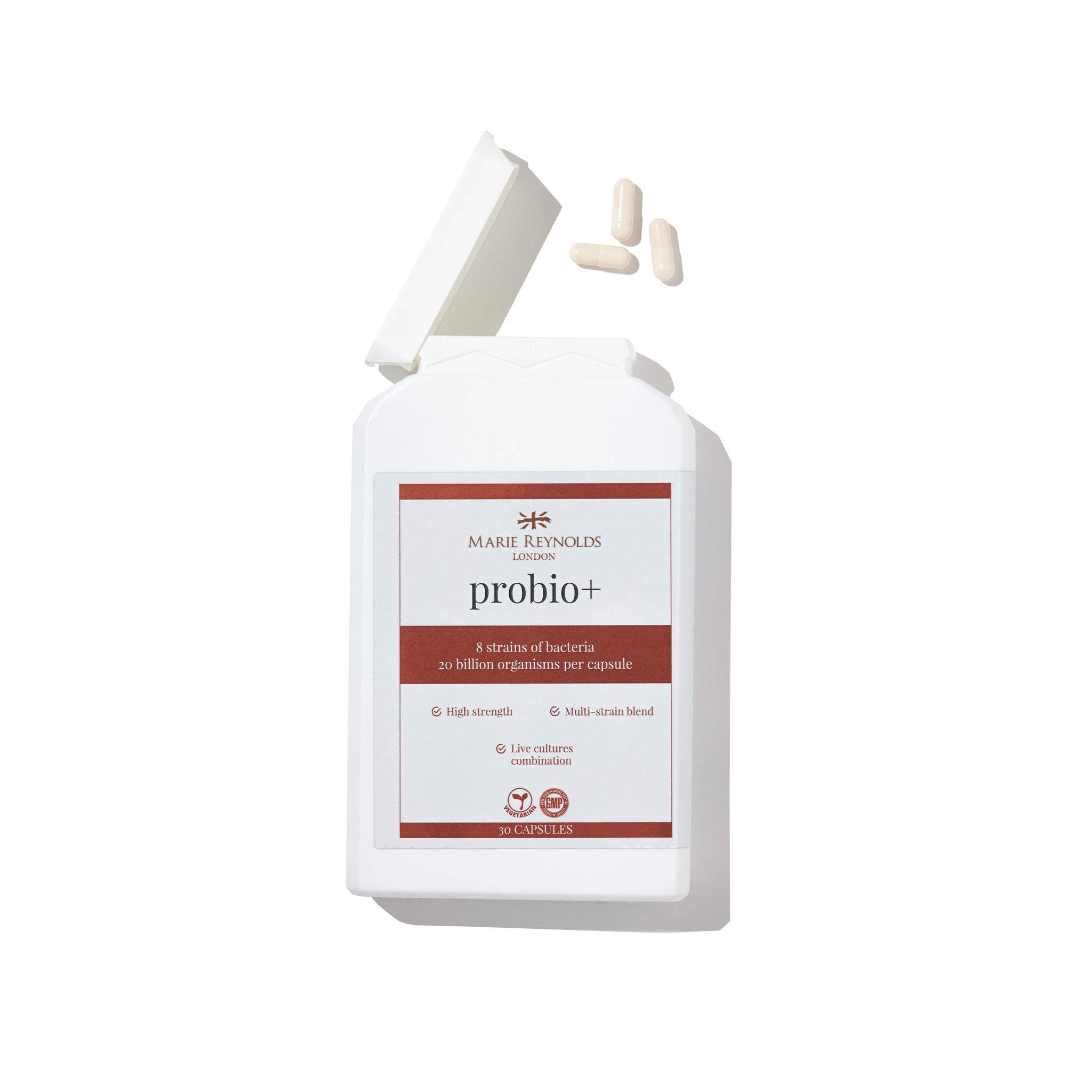
"With its broad-spectrum eight probiotic strains (encapsulated for acid resistance) at high concentration, this supplement aims to tackle most digestive and intestinal system disorders with ease,” says Reynolds.
4. Collagen
Okay, so you’ll definitely have heard of this one. There are a lot of capsules, powders, liquids and even coffee creamers out there that claim to boost collagen. However, unlike the other ingredients featured in this edit, collagen has almost no benefits when applied to your skin. "Collagen is a molecule that is too large to be absorbed transdermally by the skin,” explains Glover. "So applying it topically won’t help reduce the appearance of wrinkles or improve skin elasticity and surface structure.”
This explains why collagen is such a popular supplement ingredient, ticking all the boxes when it comes to targeting the main signs of skin ageing such as loose skin and fine lines. Our bodies start to lose collagen once we hit our 30s, so as we age and our body slows down its natural collagen production, these signs of ageing become more apparent.
Shop the supplements:
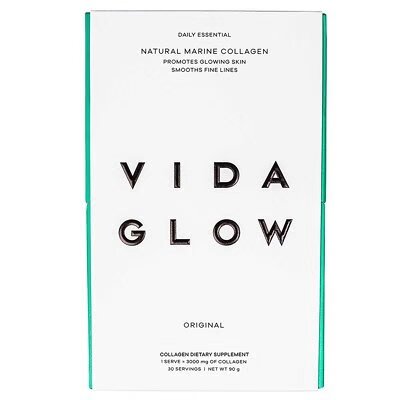
This powder blend contains nothing but natural collagen (derived from fish skin), designed to be mixed with water and consumed daily. I love it because, unlike other brands’ products, it dissolves completely and leaves no unpleasant aftertaste.
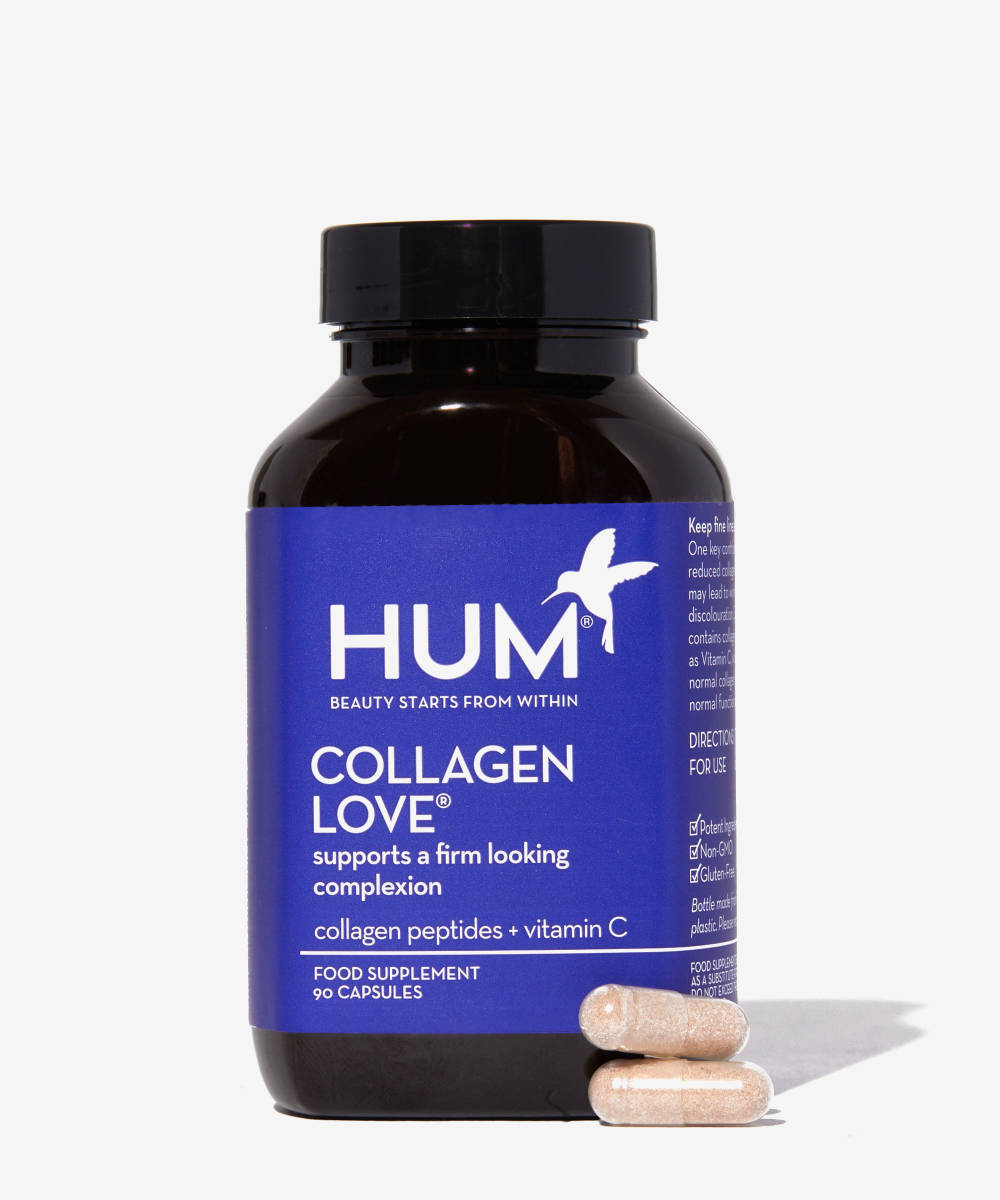
This formula utilises hydrolysed marine and bovine collagens. Hydrolysed means the collagen has been broken down into smaller molecules that are easily absorbed by the body.
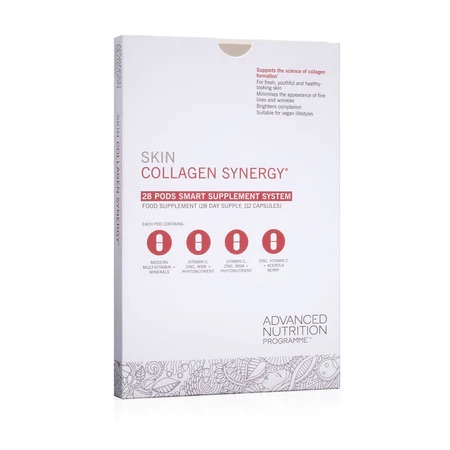
Taking a unique approach, this supplement works cleverly by reactivating your body’s own collagen production. "Each daily pod contains four capsules containing 32 ingredients (including zinc and vitamin C),” says Perretta. "It will help to support your own internal collagen formation, delivering renewed resilience.”
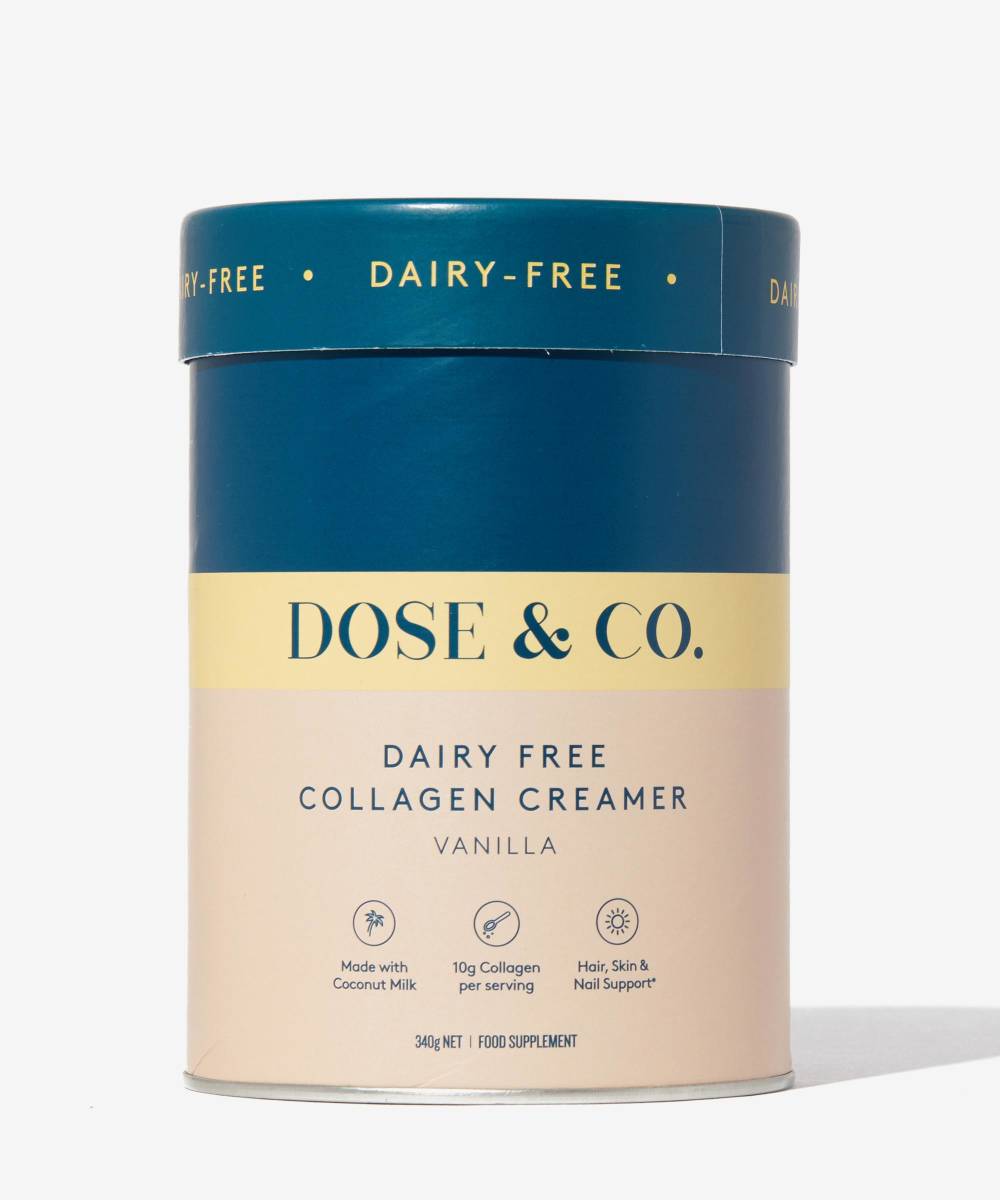
Doing double duty as a coffee creamer, this loose powder can also be blended into smoothies, ice cream and yogurts. It delivers 10 grams of high-quality bovine collagen per serving.
5. Vitamin A
In skincare, vitamin A is more commonly known as retinol, but this can be just as effective when taken as a supplement. "Vitamin A is known to do a lot for the skin, from helping to prevent breakouts to promoting natural moisturising,” explains Glover. "It’s also required for cell growth, as well as the process of making stem cells into various kinds of cells, so in turn, this can help maintain normal skin.”
When applied to the skin, retinol can cause redness, irritation, and even peeling, and it’s also recommended not to layer it with other active skincare ingredients, so it’s not always that easy to fit into your routine. In which case, consider taking it as a supplement instead. There aren’t many solely vitamin A supplements out there, because it works best in combination with other ingredients, so you’ll often find it in multivitamin blends like the below.
Shop the supplements:
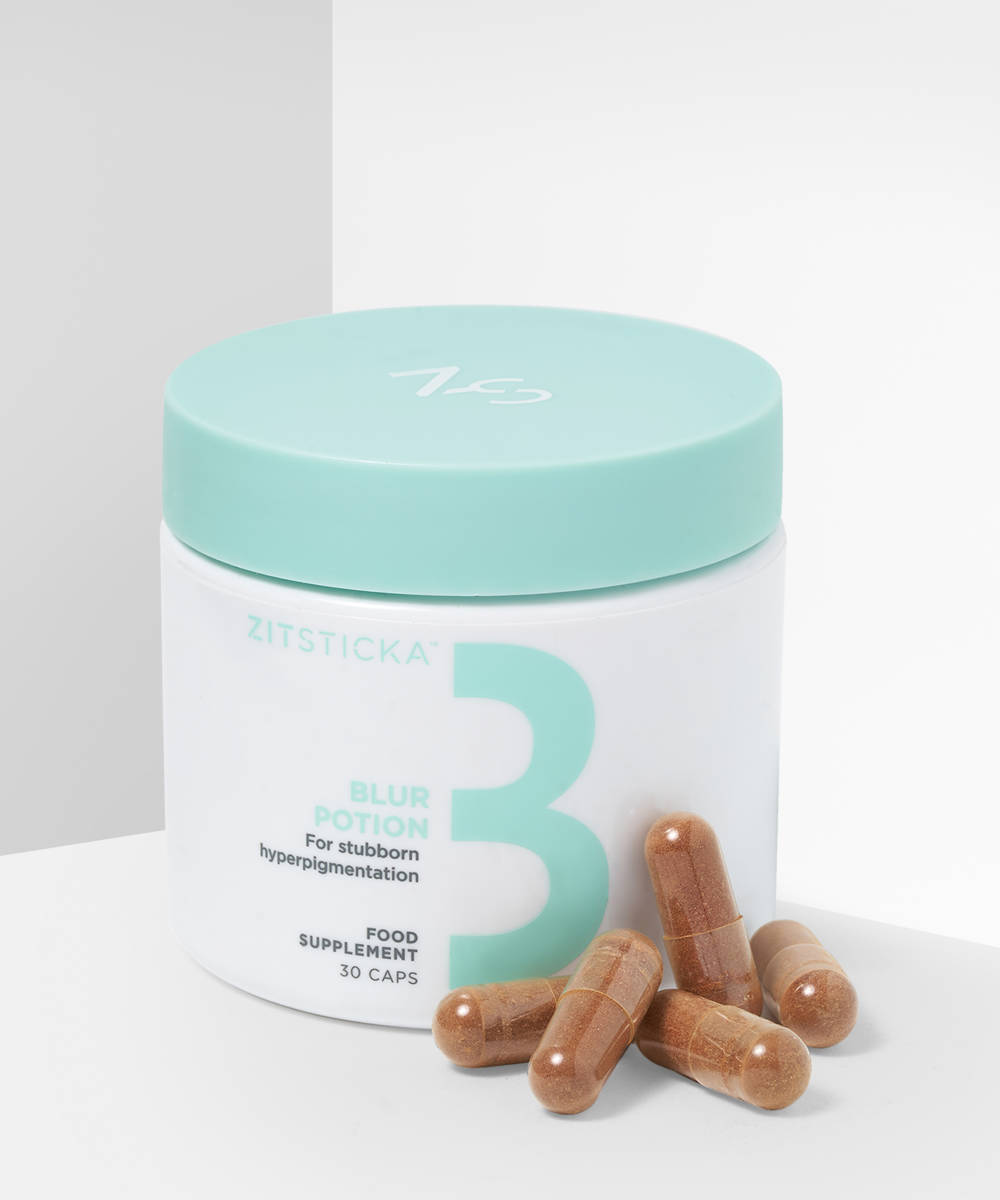
Combining vitamin A with vitamin E, this supplement works to target areas of hyperpigmentation by speeding up cell turnover and blocking pigment production. It’s great if you experience post-breakout scarring and red marks.
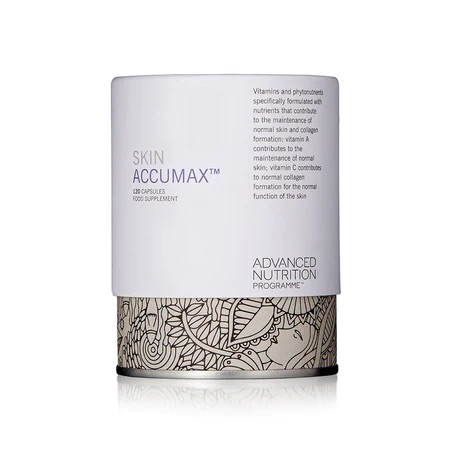
Skin Accumax made me truly believe in the power of supplements, helping me to finally shift the stubborn hormonal acne that followed me from my teens to my 20s. It contains vitamins A, C, and E, plus a phytonutrient (known as DIM), which (combined) has amazing results for breakout-prone skin.
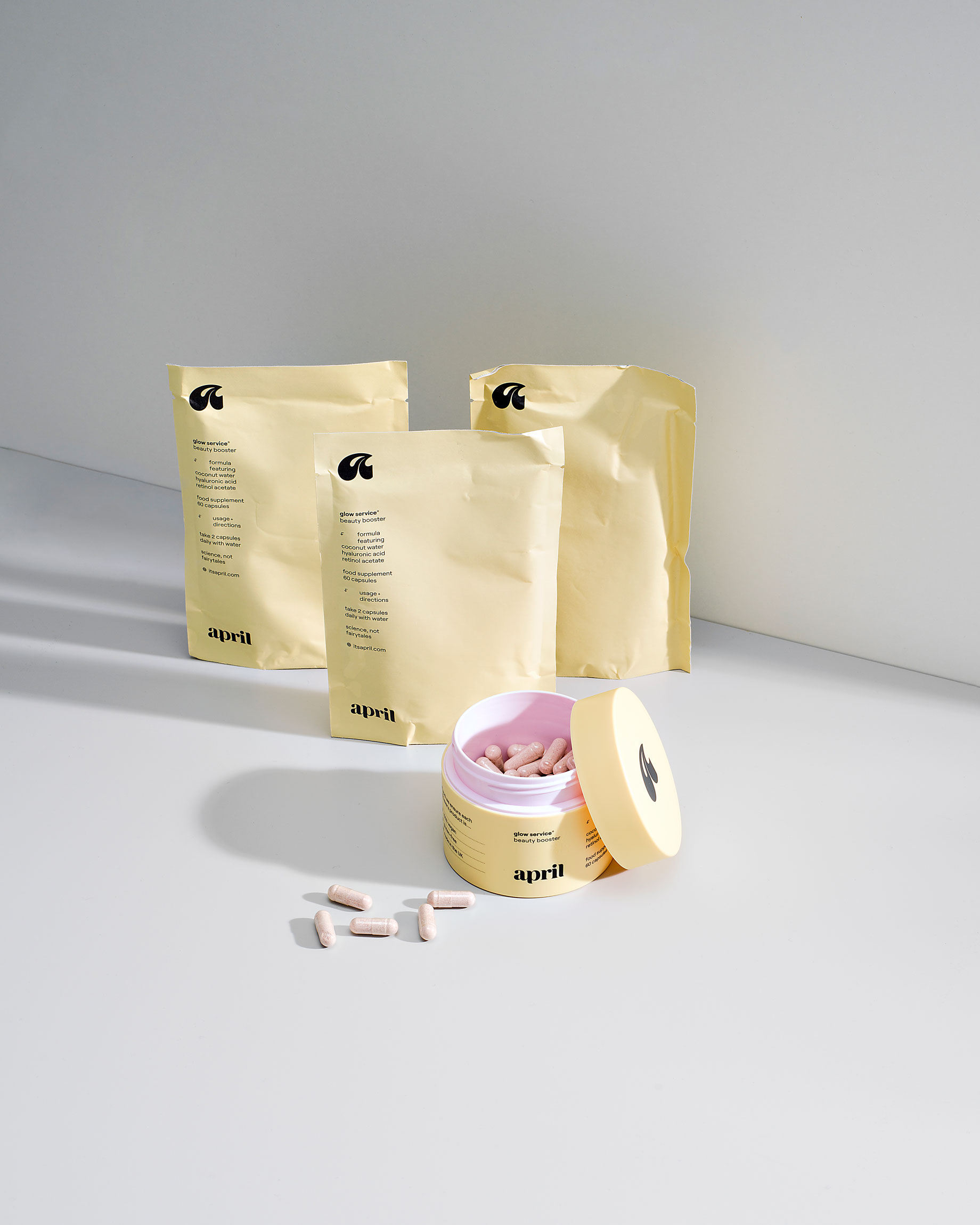
Designed for all-round glow and healthy skin, these vegan-friendly capsules combine vitamin A with biotin, hyaluronic acid and nutrient-rich coconut water.
6. Vitamin C
Chances are you’re already using vitamin C topically in your skincare routine, but the powerful antioxidant is just as beneficial when taken orally. "Vitamin C helps to build capillary walls, and it also increases oxygen in the system, which is important for increasing energy,” explains Reynolds. "This then helps to repair the skin, so it’s very good for cellular renewal.”
Just as vitamin C serums are recommended for those experiencing signs of ageing such as loose skin, fine lines and dullness, a vitamin C supplement has the same benefits thanks to its antioxidant properties. "Vitamin C protects from free radical activity caused by UV exposure,” says Glover. "It also promotes collagen production, which can help to reduce the appearance of fine lines and wrinkles and even out skin tone in the process.”
Shop the supplements:
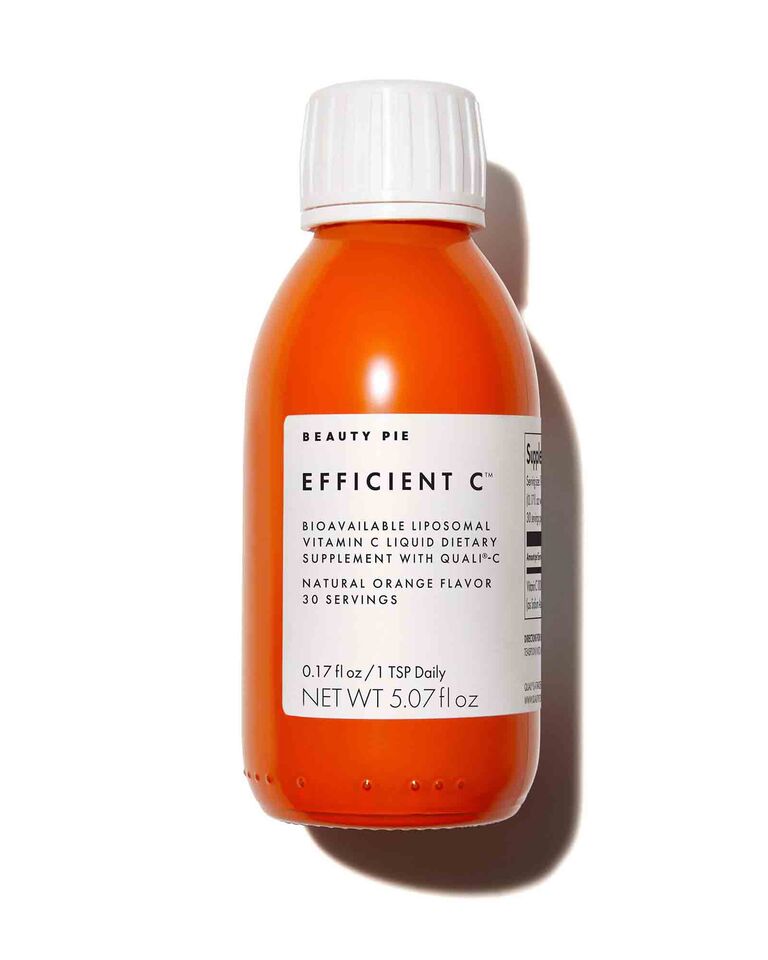
If you’re not a fan of swallowing capsules, try this liquid alternative. Just one teaspoon (taken mixed with water) provides 1000mg of vitamin C (your recommended daily allowance).
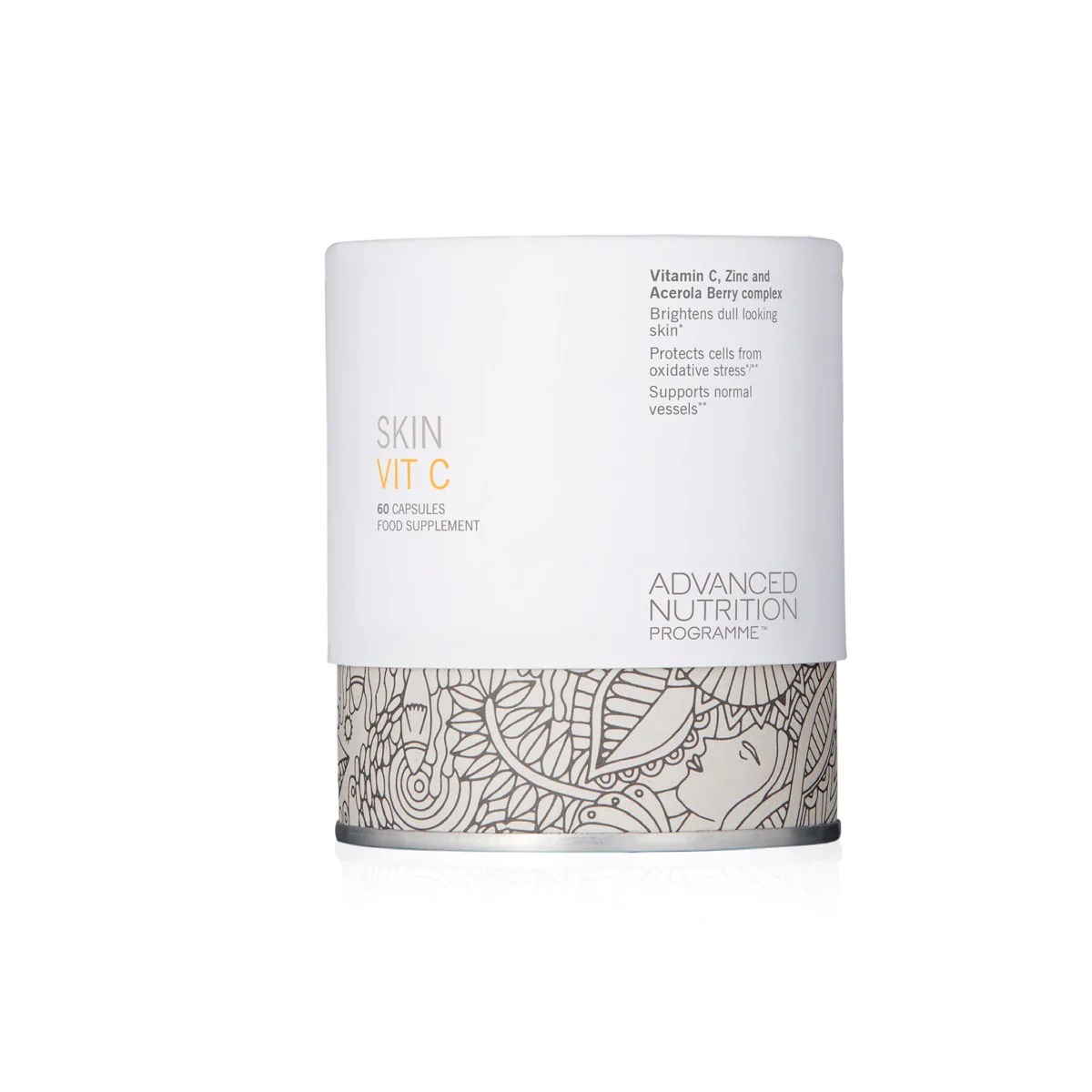
For skin that’s both brighter and firmer, this supplement combines vitamin C with zinc and acerola berry, an ingredient known to feature 50 to 100 times more vitamin C than oranges.
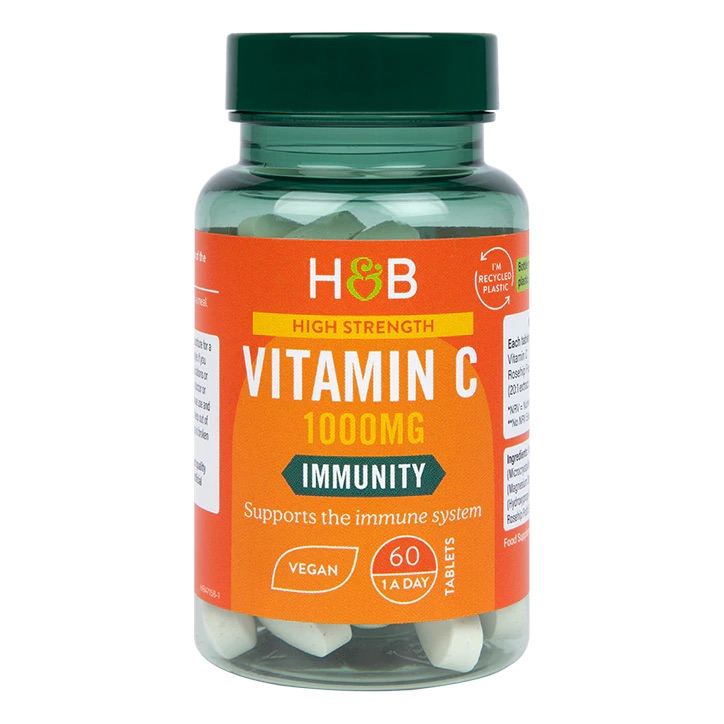
This one contains everything you need to brighten and boost your skin, and it also supports your immune health in the process.
7. Vitamin D
You've most likely heard of vitamin D in relation to the sun, and it’s often referred to as the sunshine vitamin because our bodies produce it when we’re exposed to sunlight. According to the NHS, if you live in the UK, then you probably don’t make enough vitamin D naturally, so the government actually advises taking a vitamin D supplement during the autumn and winter. Vitamin D helps to regulate calcium so is beneficial for keeping bones and muscles healthy, and since it’s also a powerful anti-inflammatory, it’s recommended for those with inflammatory skin conditions such as acne, psoriasis and eczema. As an acne-sufferer myself, I swear by this stuff.
Shop the supplements:
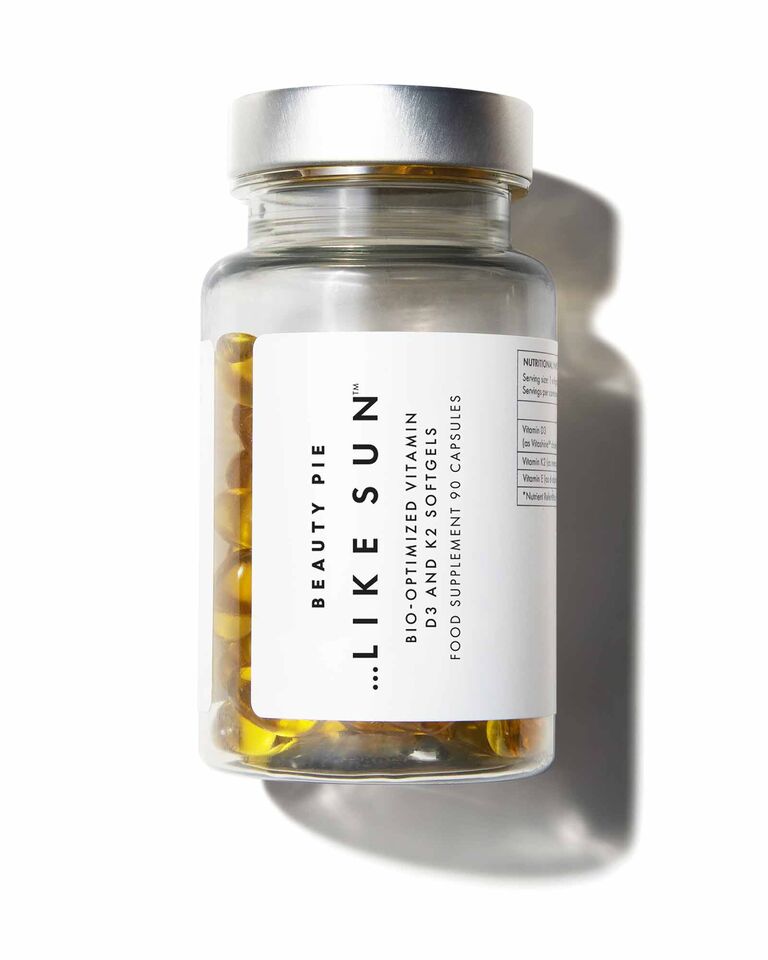
These aptly named soft-gel capsules contain a naturally sourced and vegan form of vitamin D in a super-high dose (1000IU).
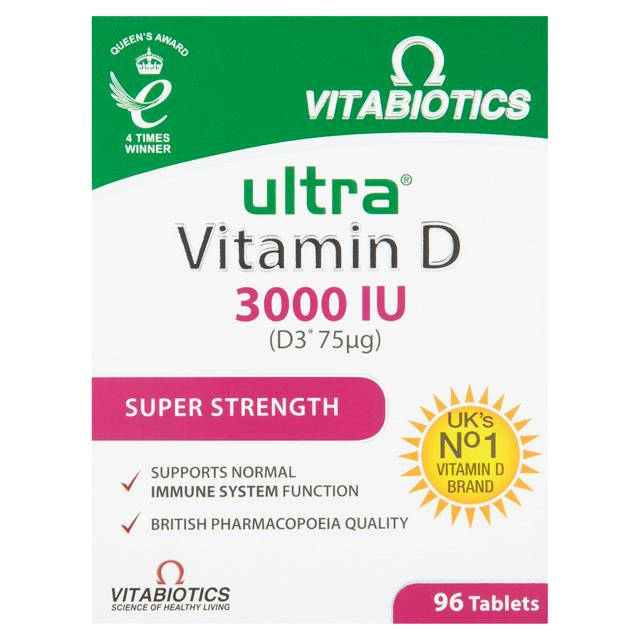
Affordable but powerful, this is a three-month supply of high-strength pharmaceutical-grade vitamin D.
Next Up: 24 Products Beauty Editors Can't Stop Recommending to Their Friends
Grace Day is a beauty editor and content creator. She has over 10 years of beauty-industry experience, spanning editorial, retail, and e-commerce, which gives her a unique understanding into how people shop for their beauty routines.While studying for a history degree (specialising in the history of beauty) and working as a beauty adviser in department stores, Grace started writing her own beauty blog in order to share the products she discovered while dealing with acne. After graduating, she moved to Beauty Bay as beauty editor and content manager. Grace is currently a beauty contributor to Who What Wear. She has also written for Hypebae and PopSugar and works as a brand consultant and copywriter.
-
 Ava Phillippe on Her "Fantasy" Brunette Era and the $12 Lip Stain She Bought After Billie Eilish
Ava Phillippe on Her "Fantasy" Brunette Era and the $12 Lip Stain She Bought After Billie EilishRead our Unfiltered chat.
By Jamie Schneider
-
 I'm an NYC-Based Shopping Editor, and I Always Shop My Favorite Emerging Brands at This One Cool Retailer—See My Picks
I'm an NYC-Based Shopping Editor, and I Always Shop My Favorite Emerging Brands at This One Cool Retailer—See My Picks"It's pronounced essence."
By Audry Hiaoui
-
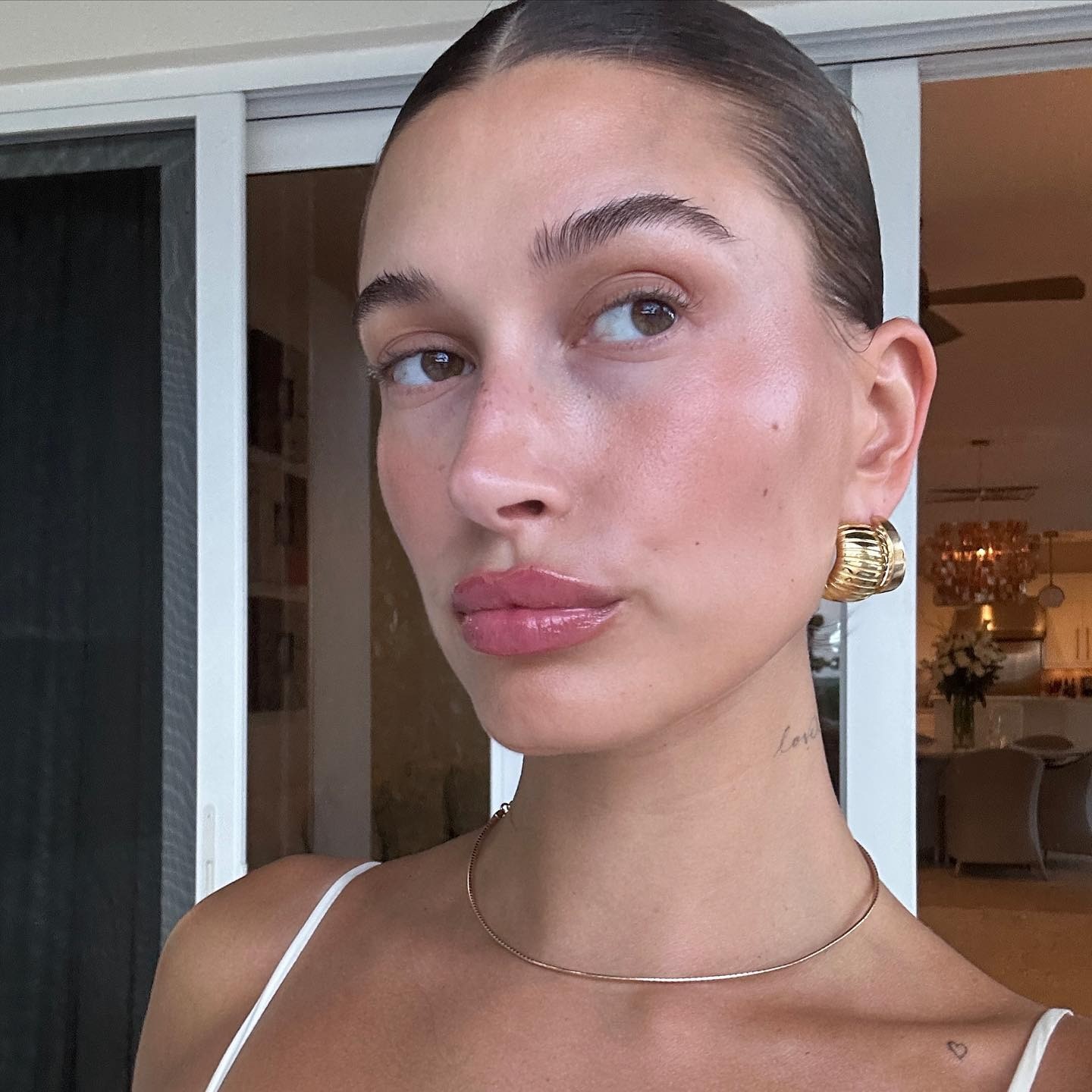 Hailey Bieber's "Holy Grail" Vitamin C Serum Just Became the Ultimate Multitasker for Skin Aging
Hailey Bieber's "Holy Grail" Vitamin C Serum Just Became the Ultimate Multitasker for Skin AgingSkin brightening, supercharged.
By Jamie Schneider
-
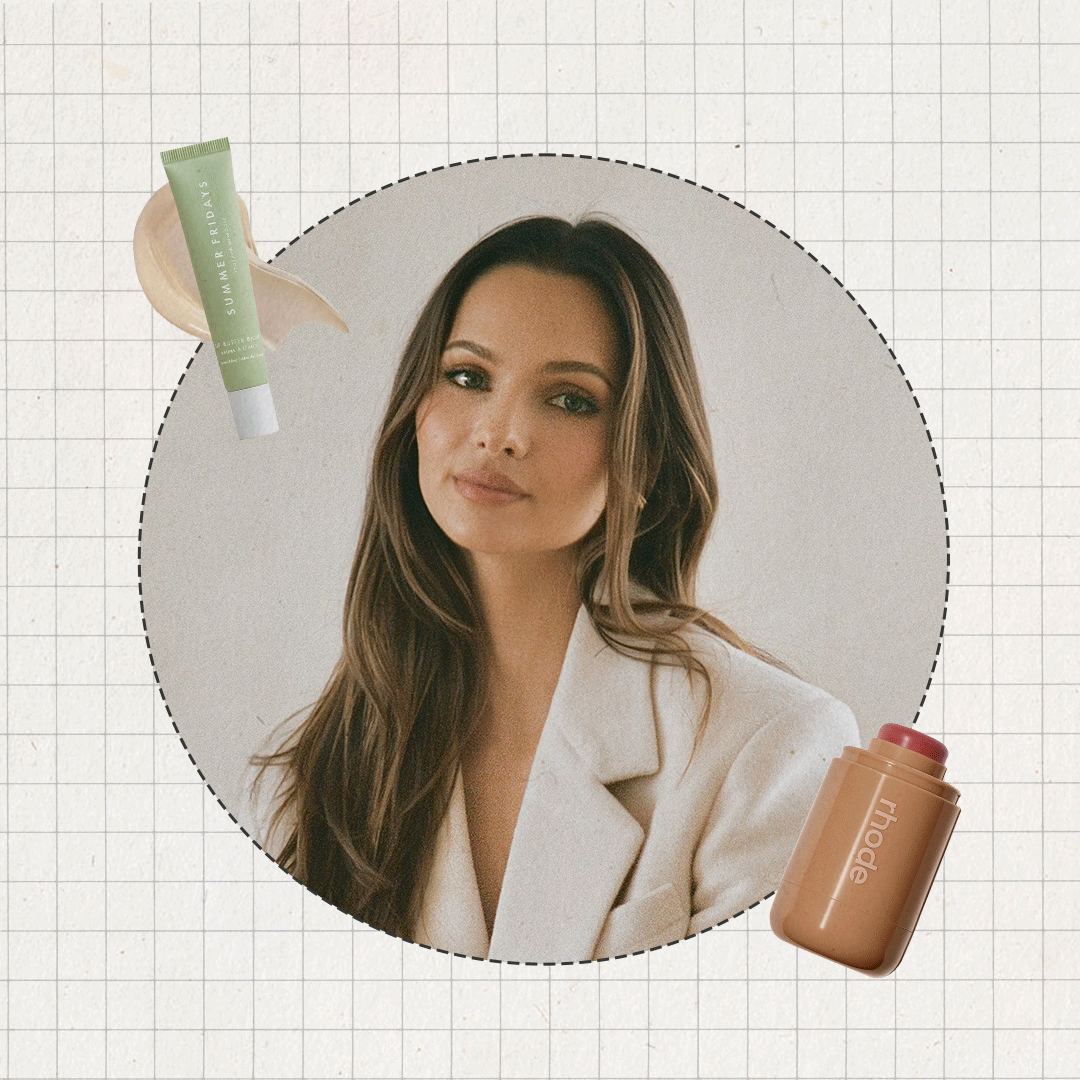 Pia Mance Always Looks Chic—10 Beauty Buys She Says Are the Key to Elegance
Pia Mance Always Looks Chic—10 Beauty Buys She Says Are the Key to EleganceIncredible stocking stuffers ahead.
By Jamie Schneider
-
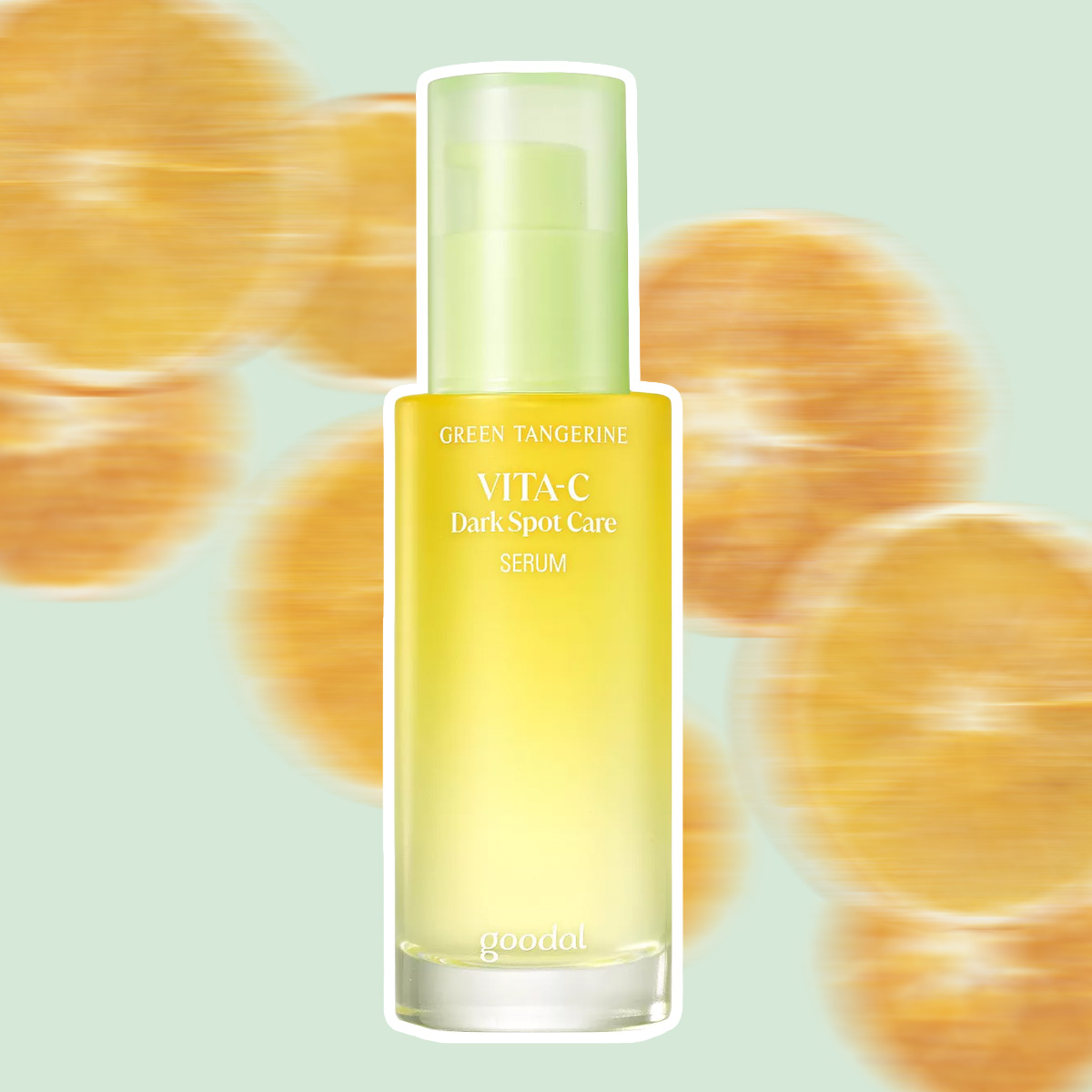 I Discovered Korea's Best-Selling Vitamin C Serum, and It's Only $20 on Amazon
I Discovered Korea's Best-Selling Vitamin C Serum, and It's Only $20 on AmazonIt uses an ingredient that has 10 times more vitamin C than lemons.
By Kaitlyn McLintock
-
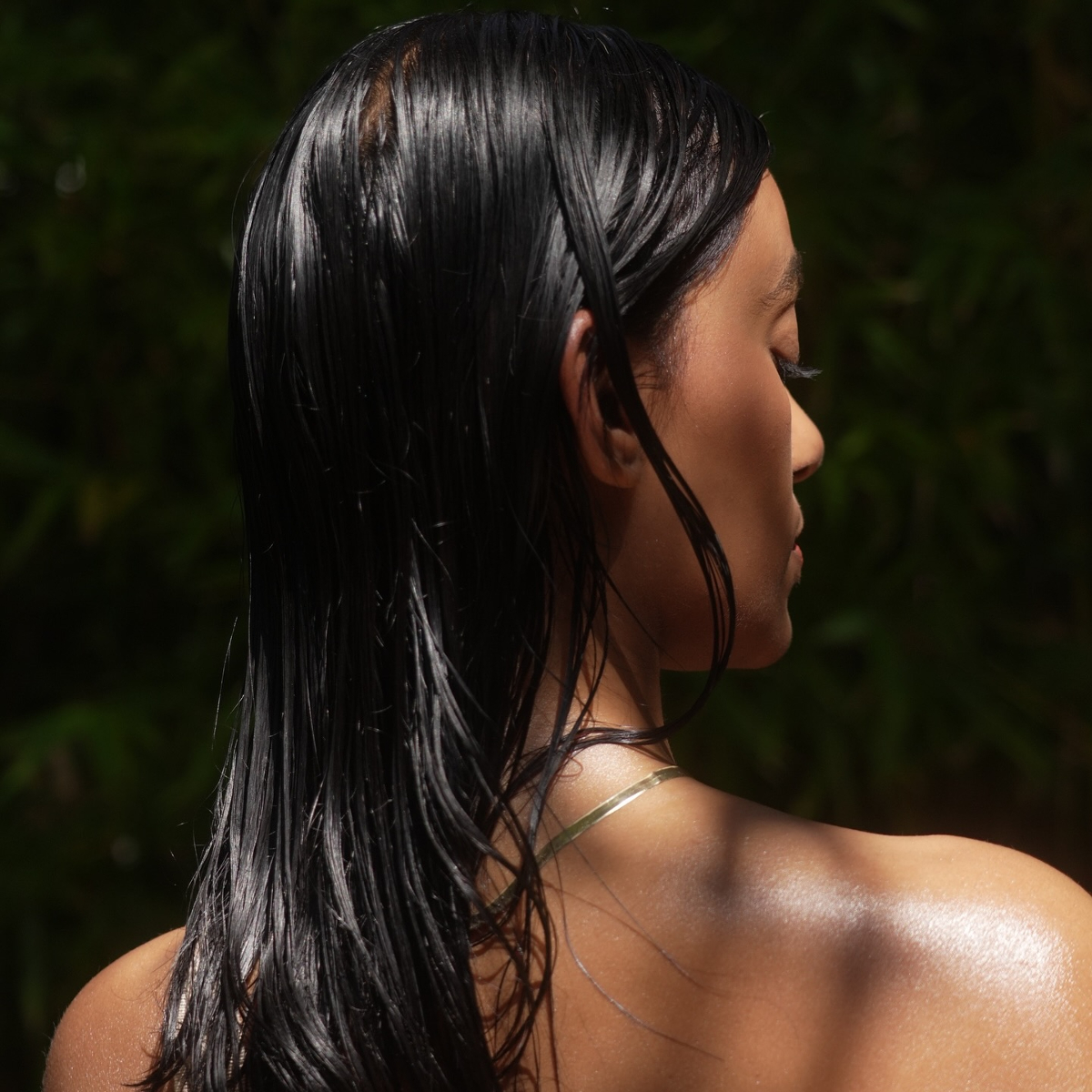 According to Experts, You Can Majorly Improve Irregular Cycles, PMS, and Hormonal Imbalance by Doing This
According to Experts, You Can Majorly Improve Irregular Cycles, PMS, and Hormonal Imbalance by Doing ThisA few things actually.
By Shawna Hudson
-
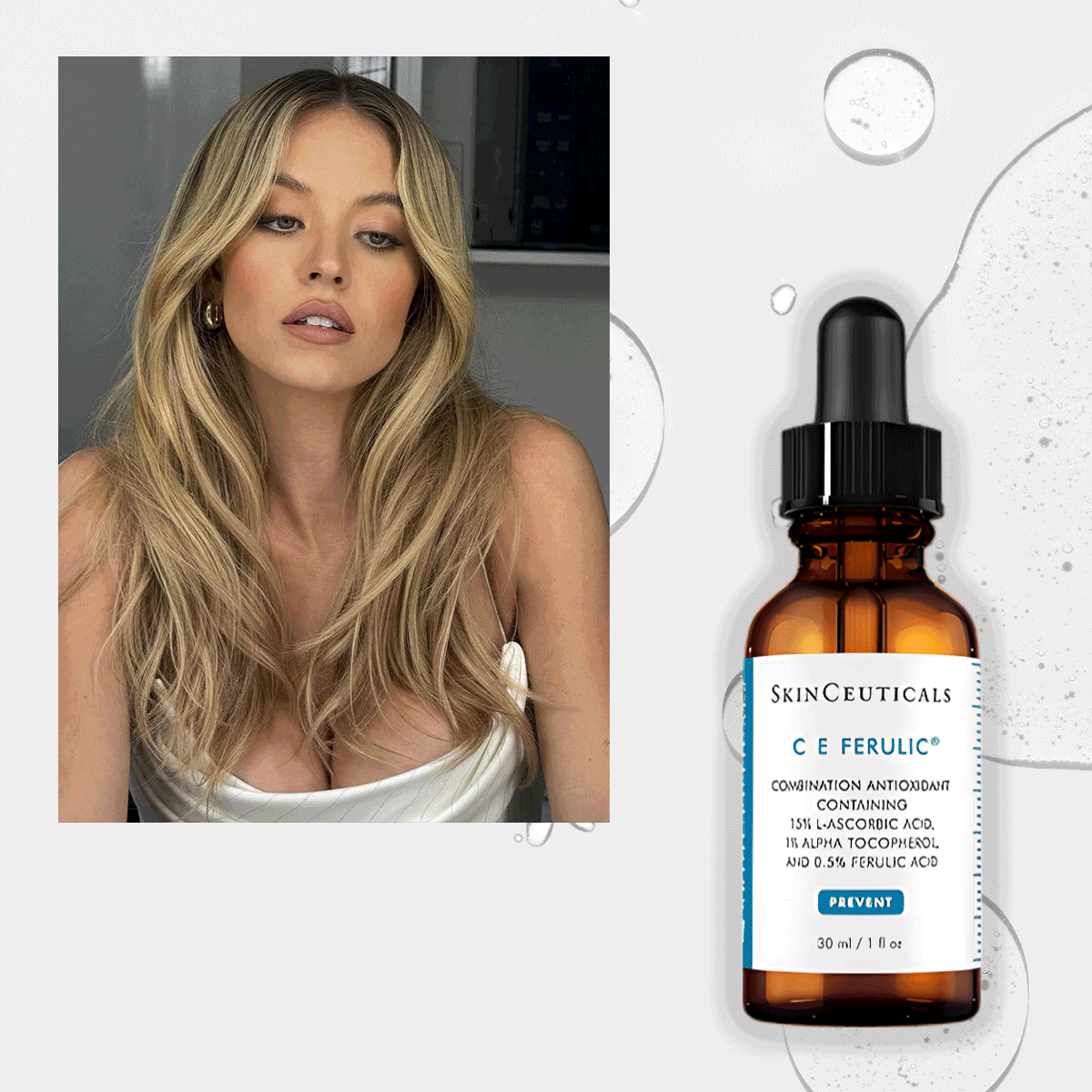 I Tried 3 Celeb-Recommended Vitamin C Serums—This One Came Out on Top
I Tried 3 Celeb-Recommended Vitamin C Serums—This One Came Out on TopFor bright, glowy skin.
By Kaitlyn McLintock
-
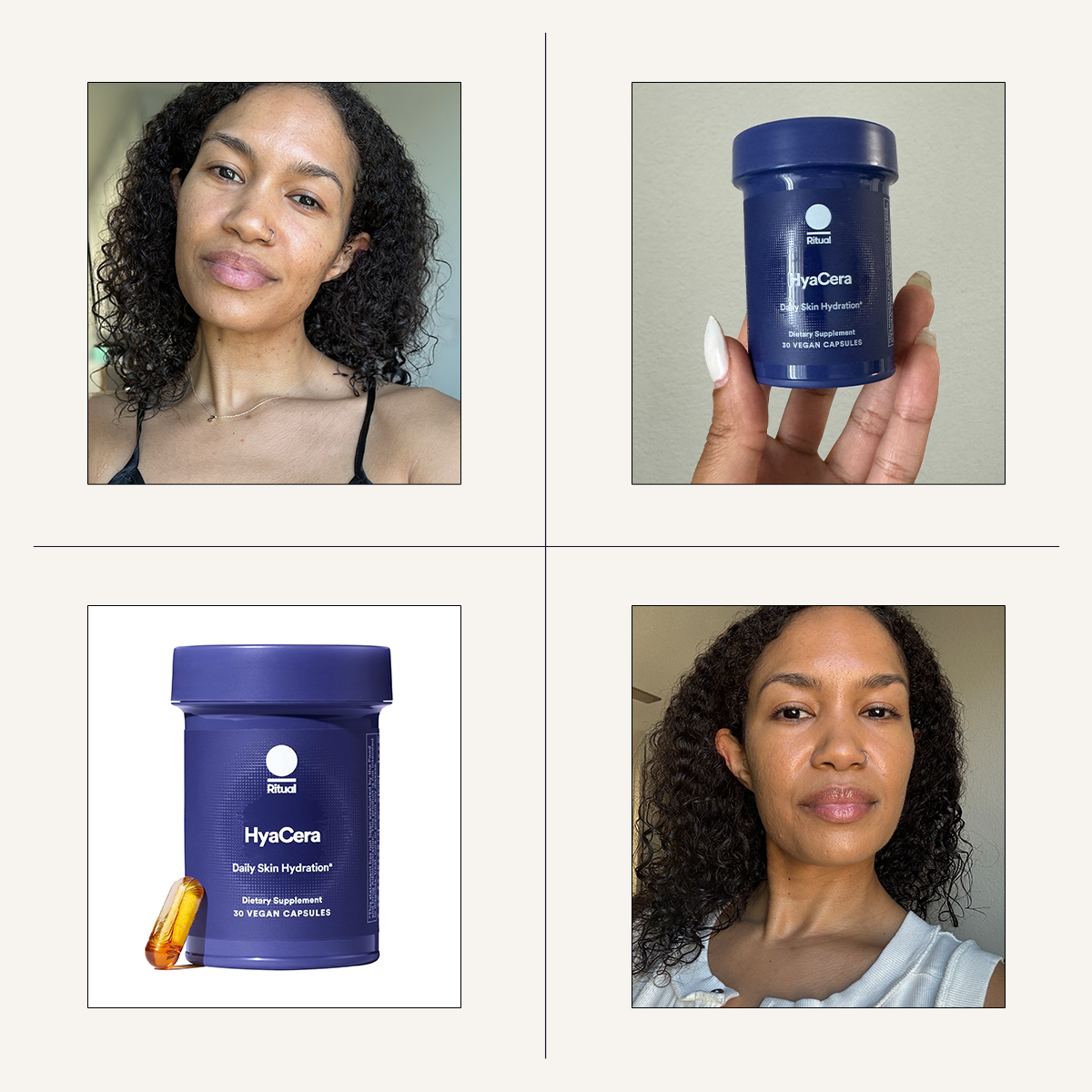 I'm Always Skeptical of Skin Supplements, But This One Really Surprised Me
I'm Always Skeptical of Skin Supplements, But This One Really Surprised MeThey're now a lifelong staple.
By Shawna Hudson
-
 15 Biotin Supplements That Can Transform Your Hair, According to Gushing Reviews
15 Biotin Supplements That Can Transform Your Hair, According to Gushing ReviewsEverything to know about the powerhouse vitamin.
By Maya Thomas
-
 You're Wasting Your Money on Vitamin C Unless You Know This One Thing
You're Wasting Your Money on Vitamin C Unless You Know This One ThingHere's the 411.
By Kaitlyn McLintock